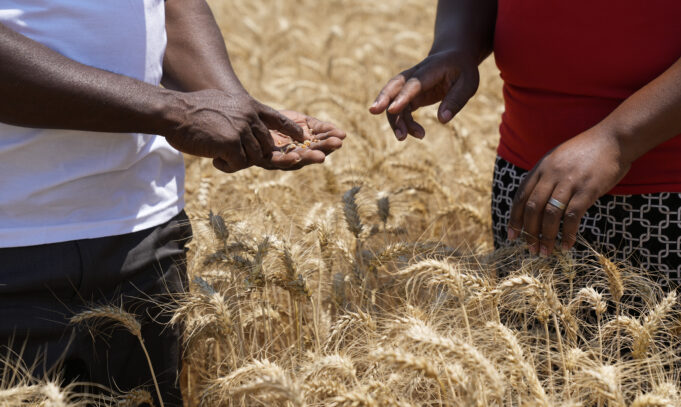A recent headline published in Zimbabwe’s main newspaper, The Herald, states, “Zimbabwe fast reclaiming breadbasket status.” The article states that the country is “breaking records of highest yields in majority crops grown last season in Africa in general, and SADC (South African Development Community) in particular.”
“The country has potential to be a net exporter of food and retain its status as SADC’s bread basket following the success of various policies that the Government has implemented to revive the agricultural sector,” noted herald.co.zw.

According to media reports, Zimbabwe may reach its target of $13.75 billion in the agricultural sector by the year 2025 after it surpassed its initial $8.2 billion target in 2021.
With a registered 375,000 tons of wheat harvested in 2022, the country, according to africanews.com, “is set to become a self-sufficient agricultural powerhouse. A unique performance in Africa.”
In the current context where the continent has suffered from the absence of “high cost Russian and Ukrainian wheat, Zimbabwe stands out for its proactive policy,” reported africanews.com. Zimbabwe no longer needs to import wheat to meet its needs, saving some $300 million in import costs.
Posting on the social media platform X, formerly Twitter, Professor Obert Jiri, Zimbabwe’s Secretary for Lands, Agriculture, Water, Fisheries and Rural Development, Professor Obert Jiri said the necessary farm inputs are being distributed to guarantee a successful “summer cropping season.”
According to the Sunday Mail, another Zimbabwe publication, the 2024/25 summer crop plan was recently presented to its Cabinet and the African nation’s government “targets to increase the production of cereals by 340 percent this season, with 3.5 million people set to benefit from the Pfumvudza/Intwasa program.”
On the downside, Professor Jiri revealed that the scarcity of land in an economy dependent on agriculture is a difficult hurdle to overcome.
He told businesstimes.co.zw, that around 99 percent of the land has already been redistributed, and that there is no more land available to provide landless Zimbabweans.
“The demand for land is huge as everyone in the country has seen the value of producing on your own piece of land. Despite having close to 300,000 people on the waiting list, the land does not expand,” Professor Jiri said.
“We feel for the young people and others who need land, but we have programs that can help them to access land,” he added. The professor said they can apply to programs through their provinces and districts.
“They may go into the joint venture programs that we are rolling out which are very key for the young
In addition, Professor Jiri emphasized that transformative initiatives and strategies need to be employed to increase investment in irrigation development and rehabilitation if the target is to be achieved by 2025.
One challenge some African governments, including Zimbabwe, face in attempting to work out their social and economic inequalities, is the post-colonial economic entanglements that remain. Nowhere is compensation—similar to Germany compensating Jews—ever taken up by former European colonial masters.
According to Al Jazeera, during the colonial era, “approximately 50 million acres of land were made available to a White population of just 48,000 settlers, and one million Africans had to share 20 million acres. What’s more, as with most British colonial heists, the Land Apportionment Act led to African communities being removed from fertile lands to accommodate newly arrived White settler communities.”
After independence, Great Britain pledged to compensate White farmers in Zimbabwe for expropriated land, only to renege. This left Zimbabwe saddled with the bill. In other words, Zimbabwe had to compensate, in the area of $3.5 billion, to Whites who displaced the original Black landowners.
Those interested in reading about Zimbabwe’s historical land question should read the 2000 book by Henry V. Moyana—whose family was displaced by White settlers—“The Political Economy of Land in Zimbabwe.” Follow @JehronMuhammadon Twitter, formerly X













